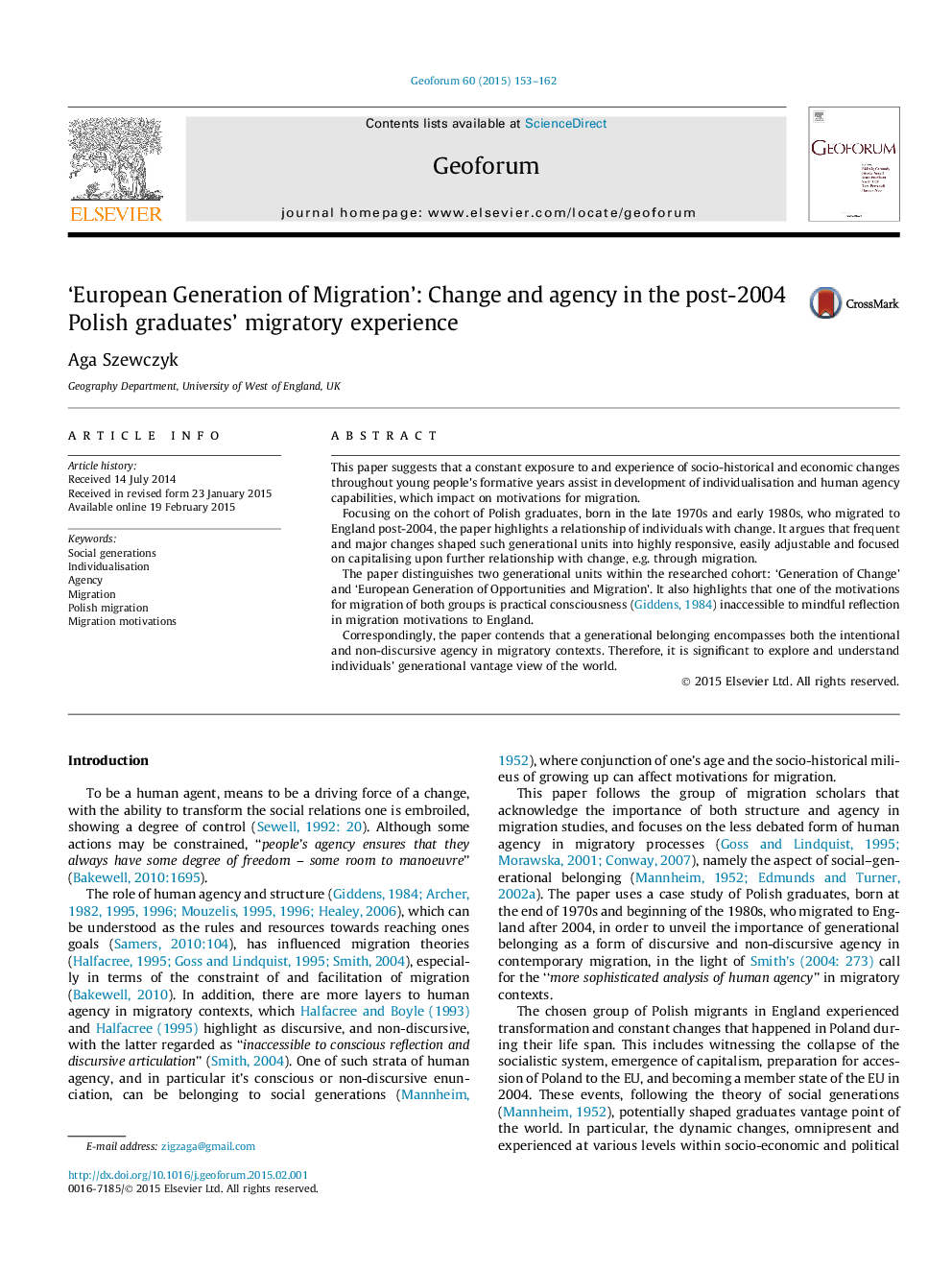| Article ID | Journal | Published Year | Pages | File Type |
|---|---|---|---|---|
| 5073730 | Geoforum | 2015 | 10 Pages |
â¢Generational belonging includes both the intentional and non-discursive agency in migration.â¢Practical consciousness is one of the motivations for migration of young Polish graduates.â¢Two generational units among Polish graduates in UK were discerned, i.e. Generation of Change.â¢Exposure to socio-economic changes during people's formative years impact on individualisation.â¢Frequent changes shaped graduates into focused on capitalising upon further links with change.
This paper suggests that a constant exposure to and experience of socio-historical and economic changes throughout young people's formative years assist in development of individualisation and human agency capabilities, which impact on motivations for migration.Focusing on the cohort of Polish graduates, born in the late 1970s and early 1980s, who migrated to England post-2004, the paper highlights a relationship of individuals with change. It argues that frequent and major changes shaped such generational units into highly responsive, easily adjustable and focused on capitalising upon further relationship with change, e.g. through migration.The paper distinguishes two generational units within the researched cohort: 'Generation of Change' and 'European Generation of Opportunities and Migration'. It also highlights that one of the motivations for migration of both groups is practical consciousness (Giddens, 1984) inaccessible to mindful reflection in migration motivations to England.Correspondingly, the paper contends that a generational belonging encompasses both the intentional and non-discursive agency in migratory contexts. Therefore, it is significant to explore and understand individuals' generational vantage view of the world.
